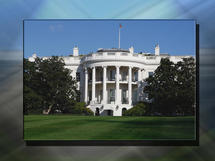Obama defends boycott of UN racism meeting
AFP
PORT OF SPAIN- President Barack Obama vowed Sunday to work with UN efforts to battle racism despite his government's boycott of a major UN conference on the problem this week.
"Let me first of all say that I believe in the United Nations," Obama said at a press conference following a 34-nation summit of American nations that ended here Sunday.

The US is leading a boycott of the so-called Durban Conference on racism opening Monday in Geneva because of language in the draft final communique equating Zionism with racism.
The meeting is a follow-up to the 2001 World Conference on Racism in Durban, South Africa that was meant to review progress that has been made in fight racial discrimination, xenophobia and intolerance.
The United States and Israel walked out of the original Durban conference in opposition to the reference to Zionism. Australia, the Netherlands, Canada and Israel have said they will also stay away from the five-day meeting.
Asked about the boycott during Sunday's press conference, Obama defended the decision.
"I would love to be involved in a useful conference that addressed continuing issues of racism and discrimination around the globe," he said.
But the US president said inclusion of anti-Israel language that was "oftentimes completely hypocritical and counterproductive" in the draft final communique was a red line for his administration.
"We expressed in the run-up to this conference our concerns that if you incorporated, if you adopted, all the language from 2001, that's just not something we can sign up for," he said.
Obama acknowledged that other countries had "made great efforts to accommodate some of our concerns," but said the concessions had not been sufficient.
"If we have a clean start, a fresh start, we're happy to go" to a future meeting on the issue, he said.
Obama said he had assured the UN's Ban that his government would help implement any concrete steps coming from Geneva that "actually reduce discrimination around the globe."
Obama also said his government was seeking a seat on the UN Human Rights commission which had been spurned by the previous administration of president George W. Bush.
"We're actually pursuing a seat on the human rights commission, the UN Human Rights Commission, even though up until this point we haven't been very pleased with how it's operated," he said.
"We think that it's worthwhile for us to go in there and try to make it into a constructive organization, because of the extraordinary range of human rights violations that exist around the world. And I think the United States should be a leader," he said.
"We can't opt out of those discussions."
-------------------------------------------------------------------------------------------------------------